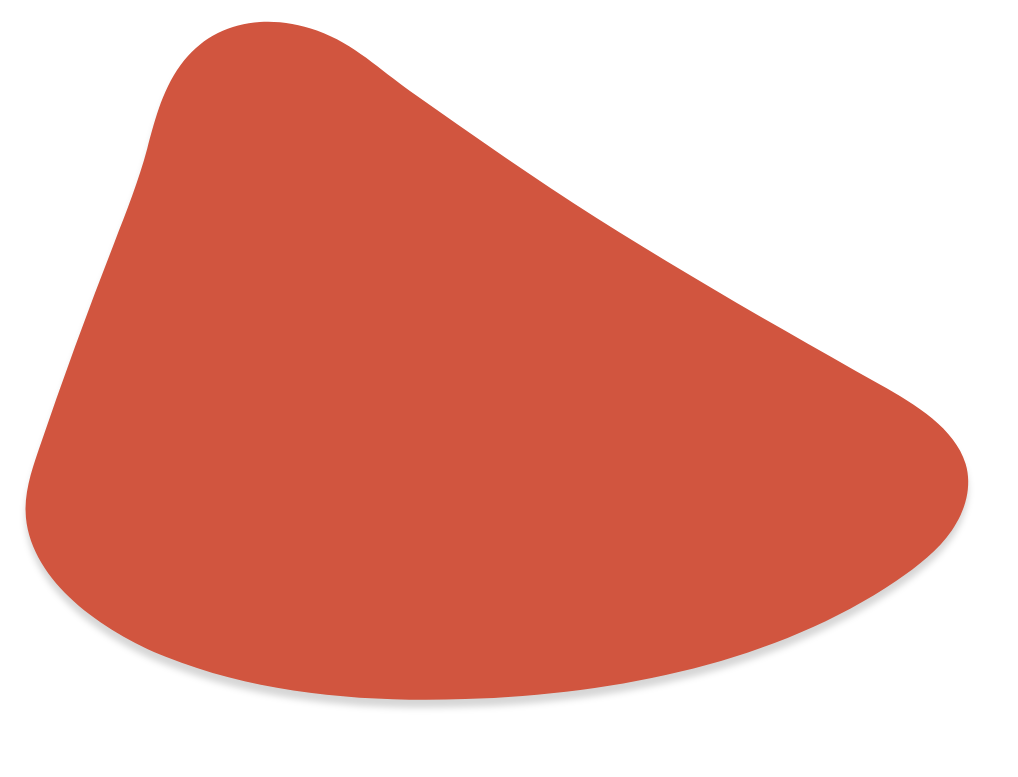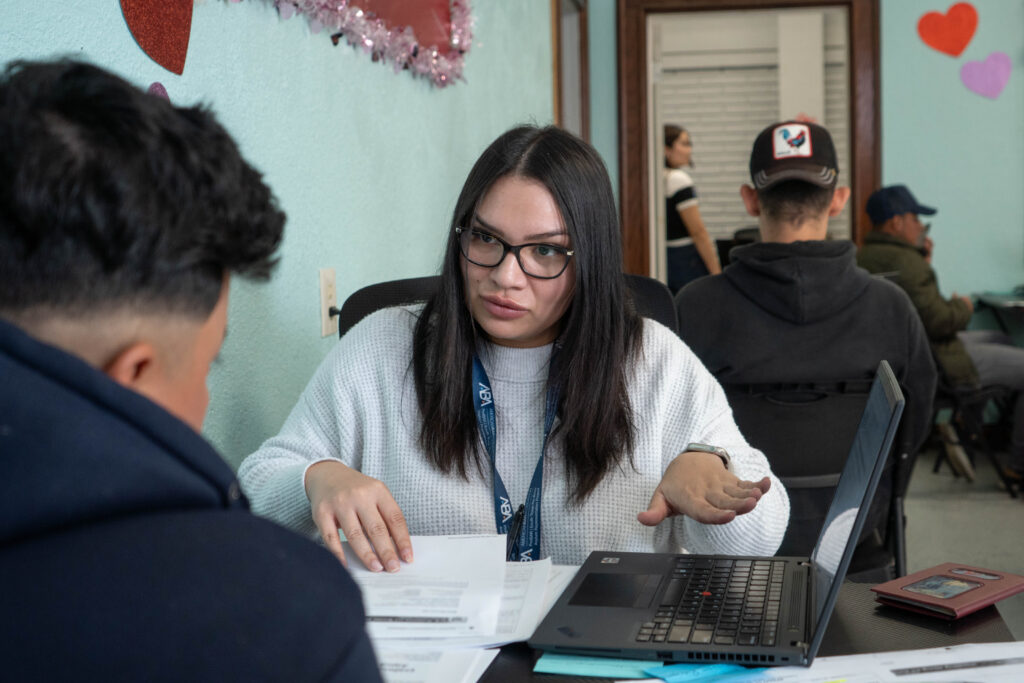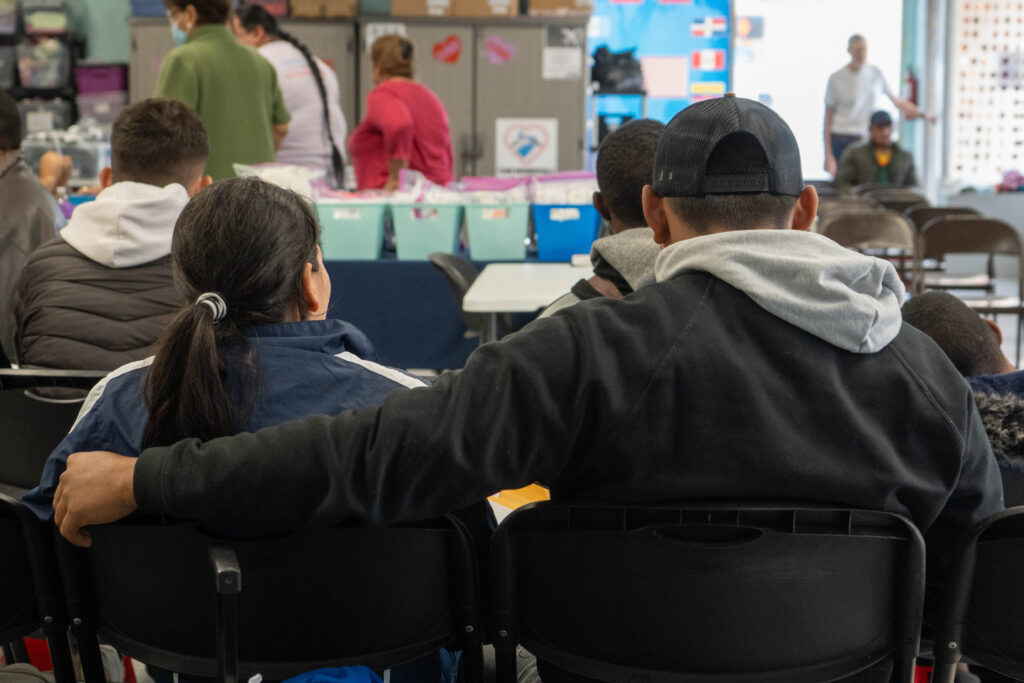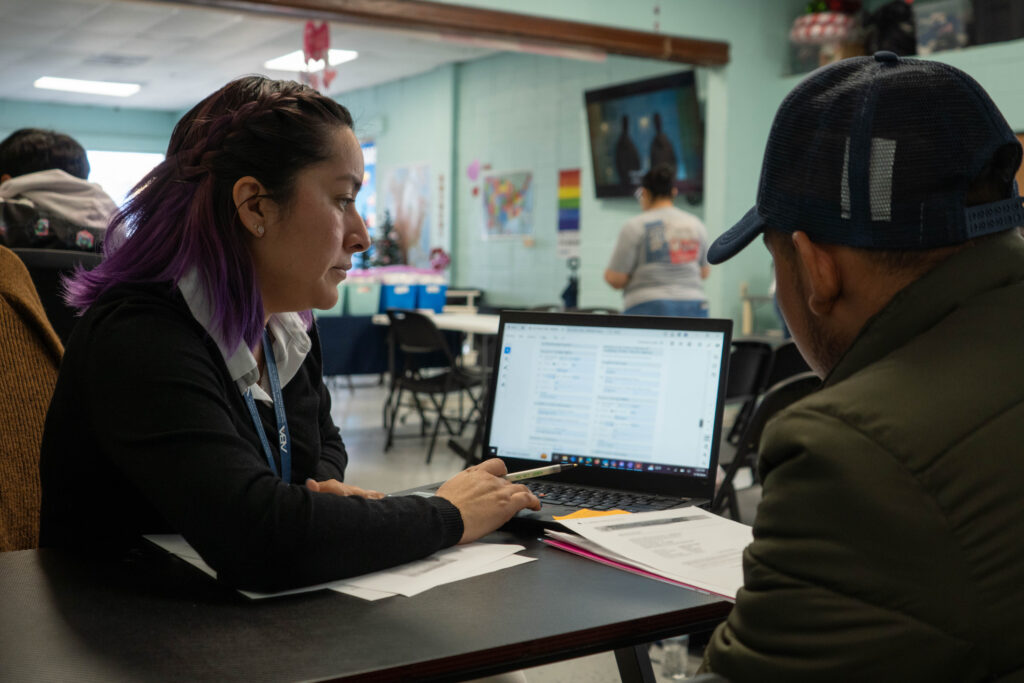Since the beginning of 2024, ProBAR, in partnership with Good Neighbor Settlement House, has helped nearly 1400 people file applications for work permits upon their arrival to the United States, saving them months of waiting and hundreds of dollars in legal fees. The collaborative pilot initiative, dubbed the Access to Work clinic, addresses an important step for people to safely begin life in the United States while their cases are pending. Emphasizing the impact of the program, Aimee Korolev, Deputy Director of ProBAR and leader of the Access to Work clinic, stated “we can really help get people on their feet, helping them get a work permit and a Social Security number within a month of their entry to the United States, whether they’re in Chicago or D.C. or somewhere else by that point.”
To help provide orderly processing and reduce irregular entries at the border, the Biden Administration has leveraged a common legal authority called parole. They have also expanded the use of a web-based processing tool called the CBP One App. Using this app, migrants and asylum seekers can schedule an appointment to present themselves at a port of entry instead of risking harm and legal penalties of entering the U.S. without permission. Once they present at a port of entry on the date of their appointment, they undergo a screening by immigration officials. Most are granted parole status and placed into immigration proceedings. In addition, their parole status makes them immediately eligible for work authorization. Under normal circumstances, individuals paroled into the United States would need to hire an attorney and pay legal and applications fees to apply for a work permit. For this reason, many lack the resources to apply until long after they have arrived at their destination in the country, making it difficult to support themselves and their families while their immigration cases are pending. This has resulted in overcrowding in shelters in major US cities such as Chicago and New York City. The innovative Access to Work clinic reduces many of these hardships by offering resources to paroled individuals that expedite the process and alleviate financial barriers: pro bono support with filling out their applications, eligibility for a fee waiver and the commitment of the United States Citizenship and Immigration Services (USCIS) to prioritize adjudication of the applications.
As part of their first welcome to the U.S., Good Neighbor staff offer applicants food, toiletries, and other supplies they may require for their journeys, meanwhile conducting a brief charla, or orientation, about the travels ahead. Then, following a brief presentation by ProBAR staff introducing our legal services, applicants sit down with a ProBAR team member or volunteer who walks them through the application process in less than an hour, free of charge. Operated by ProBAR staff with support from Good Neighbor and the City of Brownsville, the initiative opened its doors in mid-January for a four-week trial run. The project was met with so much enthusiasm from the team that more than 100 ProBAR staff members from across the organization decided to juggle their day-to-day responsibilities in order to support the project, with many opting to work multiple shifts. Lizbeth Ponce, a Paralegal with the Adult Legal team who served as an On-Site Coordinator for the first two weeks of the program, shared her enthusiasm for supporting the project. “Being able to help someone get that authorization to work, it’s a good feeling. And I think that all the staff have enjoyed that.”
During the initial four-week pilot, ProBAR assisted more than 800 people with their applications. Following an assessment of impact during the pilot phase, the ATW program re-launched in February for a second phase, which lasted through March 15 and served approximately 589 individuals. The operational model in phase 2 set a target of 300 applications per month while optimizing our use of staff time and streamlining administrative tasks, while also leaving space for volunteer participation. With early reports indicating that a number of the January applications have already been approved, ProBAR’s Access to Work clinic stands to make a profound difference in the lives of the people we serve.
To learn more about how you can support the work ProBAR does to change the lives of immigrants, visit our website and sign up to volunteer or make a donation today.




